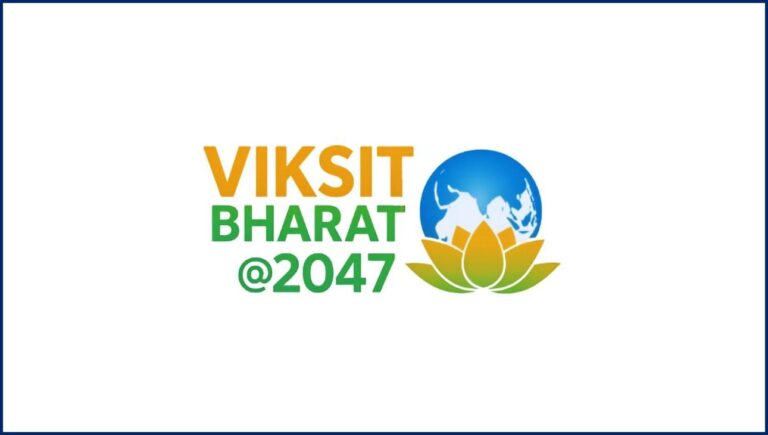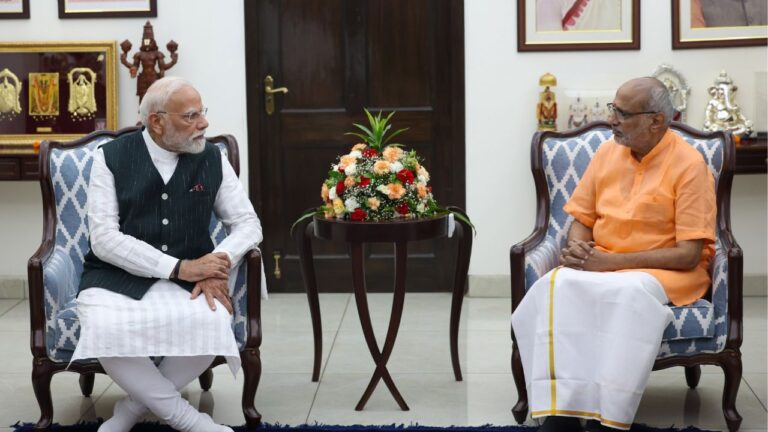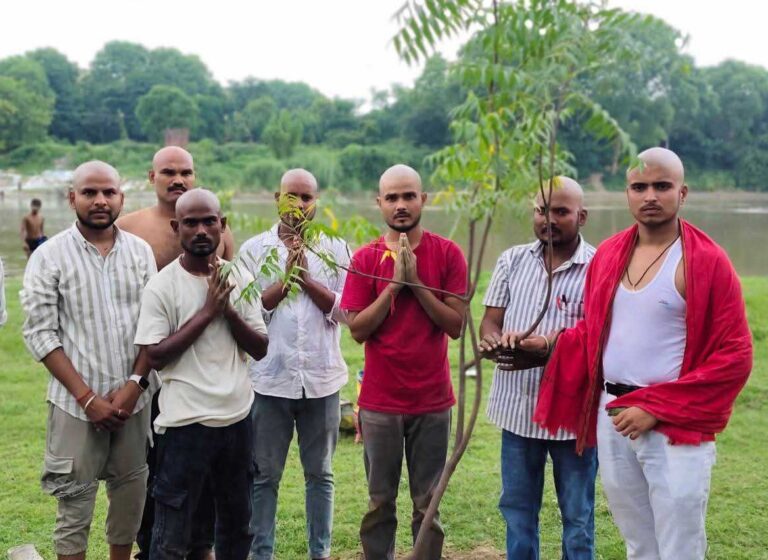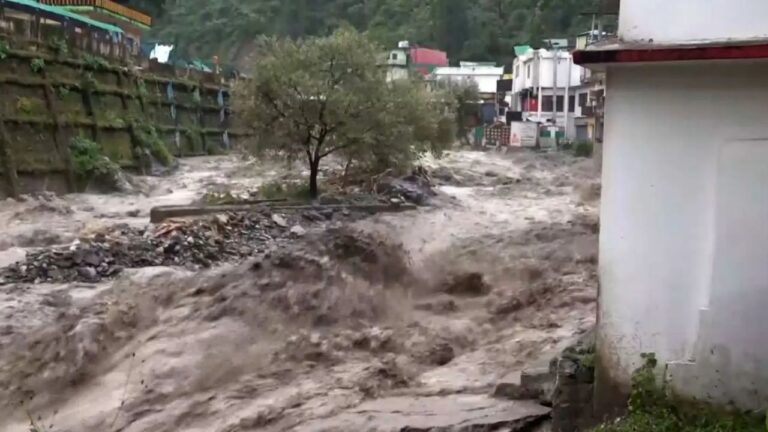
COP28: India Poised to Lead Responsible & Sustainable Growth, Saya Secretary Ms. Leena Nandan
Secretary of the Ministry of Environment, Forest and Climate Change, Ms. Leena Nandan, asserted today that India is committed to proactively leading the charge in achieving its climate targets. Speaking at a side event on “India’s journey towards sustainable cooling” at the India Pavilion during the UNFCCC COP28 in Dubai, she highlighted India’s progress in meeting its Nationally Determined Contributions (NDCs).
Ms. Nandan pointed out that when India initially announced its NDCs in 2015, the country aimed for a 33-35% reduction in emission intensity by 2030. However, she proudly stated that India has exceeded expectations by achieving a 33% reduction in emission intensity of GDP in 2019. This success, she credited to India’s significant emphasis on renewable energy.
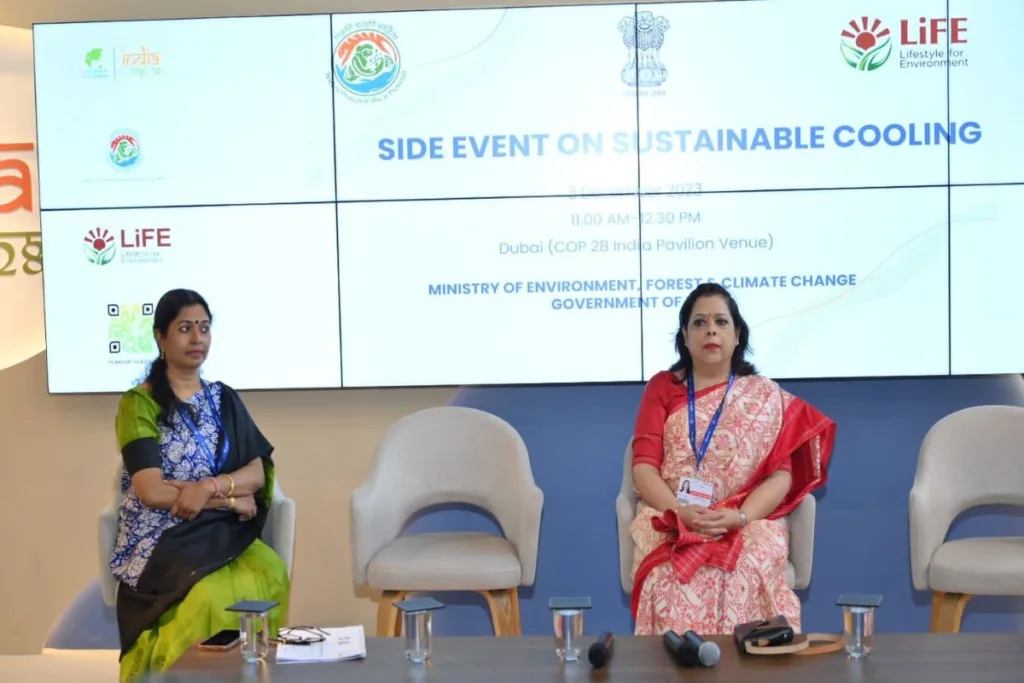
While acknowledging India’s accomplishments, Ms. Nandan emphasized that the nation continues to elevate its climate ambitions. The updated NDCs, revealed last year, reflect India’s recognition of the need for global collaboration to combat climate change effectively.
India, according to Ms. Nandan, faces the consequences of climate change despite not being a primary contributor to the problem. Nevertheless, she highlighted India’s proactive role in finding solutions, citing the India Cooling Action Plan as a model for many nations. Ms. Nandan urged increased efforts to research coolants suitable for India’s climatic conditions, coupled with industry collaboration to expedite the adoption of sustainable cooling technologies.
Stressing India’s commitment to responsible and sustainable growth, Ms. Nandan invited industry stakeholders to join hands in making India a leader in cooling technologies. The event showcased India’s achievements under the Montreal Protocol and outlined the country’s roadmap toward creating a sustainable cooling and thermal comfort ecosystem.
Economic Adviser, Ms. Rajasree Ray, emphasized the need for an integrated approach to achieve sustainable cooling and thermal comfort in India. A publication titled “India’s journey towards sustainable cooling” was released during the event, providing insights into the country’s initiatives and collaborations with international environmental commitments.
The publication highlighted the significant use of cooling in various sectors such as residential and commercial buildings, cold-chain, refrigeration, transport, and industries. Recognizing the growing demand for cooling in the face of economic expansion, India has developed the India Cooling Action Plan (ICAP), a multi-stakeholder initiative to address cooling requirements across sectors.
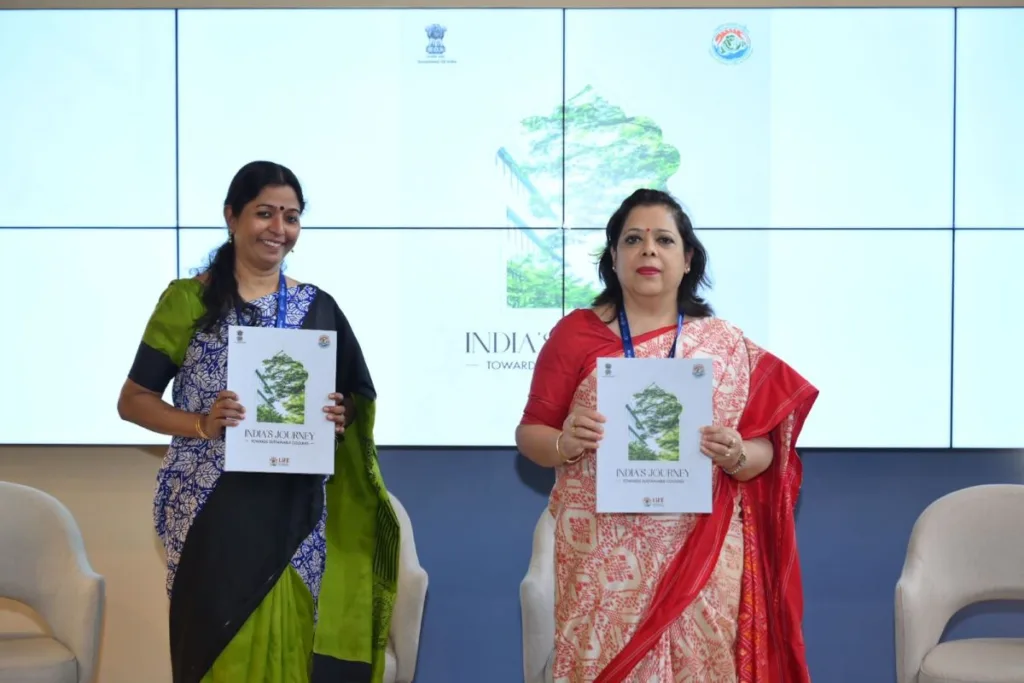
India’s proactive stance in implementing the Montreal Protocol was also commended during the session. The country has phased out HCFC 141b, a blowing agent in the production of rigid polyurethane foam, well ahead of the schedule. India achieved 44% against the 35% target for the production and consumption phase-out of HCFCs by January 1, 2020, under the HCFC phase-out Management Plan (HPMP) Stage-II.
Representatives from industries, including Blue Star Limited, SRF Limited, and Subros Technical Centre, shared their initiatives towards sustainable cooling during the session. Implementing agencies such as UNDP, UNEP, and GIZ also presented their perspectives to ensure the success of the Montreal Protocol.
India’s commitment to sustainable cooling practices underscores its dedication to balancing economic growth with environmental preservation, setting a positive example on the global stage.
